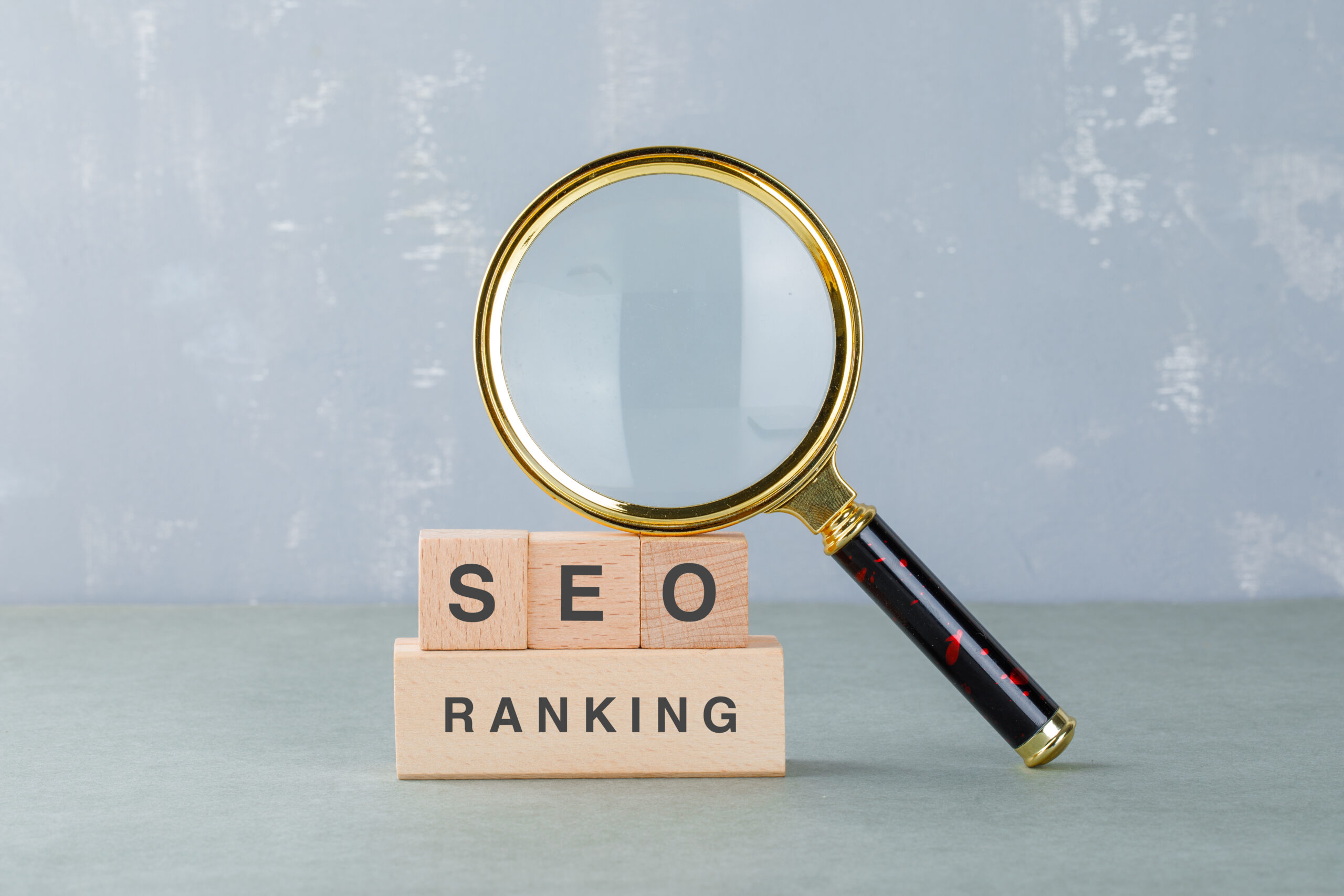SEO (Search Engine Optimization) is essential for improving a website’s visibility on search engines, but businesses often wonder how long it takes to see noticeable results. SEO success doesn’t happen overnight. It requires time, consistency, and the right strategy to yield sustainable growth in organic traffic and rankings.
Cities like Columbus, Ohio, are home to a wide range of businesses, from tech startups to established local retailers, all vying for attention in the competitive online marketplace. Partnering with the best SEO company in Columbus, Ohio, ensures a tailored approach that accelerates results, specifically addressing the unique needs of Columbus-based businesses.
This article will cover the factors that influence SEO timelines, helping you understand what to expect and how to measure progress effectively.
Factors That Influence the Time to See SEO Results
Several factors determine how quickly SEO efforts begin to show results. While SEO is a long-term strategy, understanding the key elements that impact the timeline can help businesses set realistic expectations.
Below are the primary factors that influence how soon you can see tangible outcomes from your SEO investments.
-
Website Age and Authority
Older websites with established authority tend to see faster SEO results compared to newer ones. Search engines trust well-established websites with quality backlinks and content that has been indexed over time.
For new websites, building domain authority takes longer as they must establish trust and relevance in their respective niches.
SEO strategies for newer sites often focus on building foundational elements like content, technical structure, and backlinks to help accelerate their growth.
-
Industry Competitiveness
The level of competition in your industry significantly affects the time it takes to see SEO results. Highly competitive sectors, such as e-commerce, finance, or legal services, may require more time and effort to rank for targeted keywords. Conversely, less competitive niches may see quicker results with a more straightforward SEO approach.
The key is to evaluate your industry’s competitiveness and set realistic expectations based on how many other businesses are competing for the same search terms.
| Did you know? Columbus saw a net increase of 2,764 businesses between March 2022 and March 2023, as new openings outpaced closures. For businesses looking to leverage this growth, partnering with the best SEO company in Columbus, Ohio, can provide the strategic edge necessary to achieve faster SEO results in this competitive market. |
-
Current Site Performance
The starting point of your website plays a major role in how quickly SEO efforts will show results. If your site has technical issues, such as slow page load times, poor mobile optimization, or broken links, SEO improvements will take longer.
Sites that are already optimized for user experience and search engines tend to see quicker improvements once SEO tactics are applied. Auditing and fixing technical issues should be one of the first steps in an SEO strategy to ensure faster and more effective results.
-
SEO Strategy Complexity
The complexity of the SEO strategy being implemented also impacts the timeline. For example, local SEO for a Columbus-based business might deliver results faster than a national SEO campaign that targets a broader audience.
If your SEO strategy involves extensive content creation, link building, and complex on-page optimizations, it will likely take longer to see results.
The more comprehensive and strategic the SEO plan, the longer it may take to see significant results, but the outcomes will be more impactful in the long run.
-
Algorithm Updates and Market Changes
Search engine algorithm updates, particularly from Google, can dramatically alter the SEO landscape. These updates can either speed up or slow down the results of your SEO efforts, depending on whether your website is aligned with the latest ranking factors.
Additionally, shifts in market demand, such as new consumer behaviors or industry trends, can impact SEO results. Staying up-to-date with SEO best practices and algorithm changes is essential for adapting your strategy and ensuring timely results.
Typical Timeframes for Seeing SEO Results
SEO is a long-term strategy that requires consistent effort, and the timeline for visible results can vary depending on several factors. Below, we break down the typical SEO results timelines, categorized into short-term, medium-term, and long-term expectations.
Short-Term Results (1-3 Months)
In the initial 1-3 months of an SEO campaign, businesses typically see improvements in technical SEO and on-page optimization. This phase is focused on resolving issues like improving page load speed, optimizing for mobile, and addressing other technical elements such as broken links and crawl errors.
These updates can lead to faster indexing by search engines, but ranking improvements are usually minimal during this period. You may see small boosts in keyword rankings, especially for less competitive terms, and improvements in site health and user experience, which set the foundation for future growth.
Medium-Term Results (3-6 Months)
By the 3-6 month mark, businesses will start to see more significant improvements in keyword rankings, organic traffic, and overall site performance. This period often involves content creation, including blog posts, landing page optimization, and targeted keyword integrations.
As your site begins to rank for more competitive keywords, the increase in organic traffic becomes more noticeable. Backlink acquisition also plays a role during this stage, as quality backlinks start to enhance the website’s authority and trustworthiness.
Long-Term Results (6+ Months)
The most significant and sustainable SEO results usually take 6 months or more to materialize. This is when the full impact of your SEO strategy begins to show. Over time, the efforts to build backlinks, create high-quality content, and improve user experience yield significant improvements in organic rankings.
After 6 months, businesses will typically see higher rankings for competitive keywords, a steady flow of organic traffic, and an increase in conversions from search engine visitors.
The longer you continue optimizing and adjusting your SEO strategy, the more likely your site will continue to grow in visibility and performance.
Realistic Expectations: What SEO Services Can and Cannot Achieve
SEO is an essential part of any digital marketing strategy, but it’s important to have clear and realistic expectations about what SEO services can deliver. SEO is a powerful tool, but it does have limitations, and understanding what is achievable within specific timeframes can help you avoid disappointment.
What SEO Services Can Achieve
SEO services are highly effective in boosting organic traffic, improving search engine rankings, and enhancing a website’s overall online visibility. In the short term, SEO can lead to:
- Improved Keyword Rankings: By optimizing your content for targeted keywords, SEO can help increase your website’s rankings on search engine results pages (SERPs). While it may take time to rank for competitive keywords, SEO ensures a steady climb in rankings, especially for long-tail keywords and niche topics.
- Increased Organic Traffic: As your website climbs in search rankings, it will naturally attract more organic traffic. By consistently creating high-quality, relevant content and optimizing it for SEO, businesses can increase the chances of being discovered by users searching for specific products or services.
- Enhanced Local Search Visibility: Local SEO tactics like optimizing Google My Business listings and ensuring consistent NAP (Name, Address, Phone Number) across directories are crucial for boosting local search visibility.
- Higher Conversion Rates: By improving the user experience (UX) and ensuring your website is optimized for both desktop and mobile devices, SEO can lead to higher conversion rates. Proper on-page SEO, including optimized calls-to-action (CTAs), can guide visitors towards taking actions that convert them into customers or leads.
What SEO Services Cannot Achieve?
While SEO is incredibly valuable, it cannot produce instant results. Here are a few things SEO services cannot guarantee:
- Instant Results: SEO takes time to show results. Unlike paid ads, which can bring immediate traffic, SEO works by gradually building authority, improving content, and earning backlinks. Therefore, expecting immediate rankings or a significant spike in traffic right after an SEO campaign begins is unrealistic.
- Guaranteed #1 Rankings: While SEO can significantly improve your website’s ranking, it cannot guarantee that your site will reach the coveted #1 position for highly competitive keywords. SEO is subject to multiple ranking factors and changes in search engine algorithms, so while significant improvements are achievable, reaching the top spot depends on various uncontrollable elements.
- Ranking for Extremely Competitive Keywords without Long-Term Effort: Ranking for highly competitive keywords in crowded industries, like finance, real estate, or tech, typically requires sustained effort and a long-term strategy. SEO cannot guarantee that you’ll easily surpass established websites ranking for these terms without an in-depth strategy, consistent effort, and possibly a considerable investment.
- Instant Return on Investment (ROI): SEO is a long-term strategy, and measuring its ROI takes time. While SEO will eventually bring in organic traffic and leads, it may not provide immediate financial returns. Businesses should plan for long-term investments in SEO to experience substantial results in the form of brand awareness and conversions.
Tracking and Measuring SEO Progress
To assess the effectiveness of your SEO strategy, it’s crucial to track and measure key performance indicators (KPIs) that provide insight into your website’s SEO progress.
Monitoring SEO metrics helps you identify areas for improvement, measure the return on investment (ROI), and ensure that the efforts you’re putting into SEO are driving results.
What Are the Key SEO Metrics to Monitor
- Organic Traffic: The amount of traffic your website receives from search engines is a critical metric for tracking SEO performance. Increases in organic traffic over time indicate that your website is ranking higher for targeted keywords. Regularly monitor organic traffic to gauge the overall impact of your SEO efforts.
- Keyword Rankings: Tracking the position of your targeted keywords in search engine results pages (SERPs) is one of the most direct ways to measure SEO success. While rankings may fluctuate, consistent upward movement over time is a clear sign that your SEO strategy is working.
- Backlinks: The quality and quantity of backlinks pointing to your website directly influence its authority and ranking. Keeping track of your backlink profile allows you to identify high-quality links and monitor link-building progress. A strong backlink profile is an indicator of a well-executed SEO strategy.
- Bounce Rate and Time on Page: User engagement metrics such as bounce rate (the percentage of visitors who leave your site after viewing only one page) and time on page (how long visitors stay on your website) can help you understand how well your content and user experience are resonating with visitors. Lower bounce rates and higher time on page typically indicate that your site is meeting user needs, which is beneficial for SEO.
- Conversion Rates: SEO isn’t just about driving traffic. It is also about converting that traffic into leads or sales. Measuring the conversion rate (the percentage of visitors who take a desired action) is essential for understanding how well your site’s SEO is contributing to business goals.
Tools for Tracking SEO Progress
Several tools are available to help businesses track their SEO progress and gain deeper insights into their website’s performance. Some of the most popular and effective tools include:
- Google Analytics: A must-have for monitoring traffic patterns, user behavior, and conversions. Google Analytics provides detailed insights into organic traffic, bounce rates, and session durations, allowing you to assess the effectiveness of your efforts.
- Google Search Console: This free tool provides data on how your website is performing in Google search results. It offers insights into keyword rankings, click-through rates (CTR), indexing issues, and overall site health.
- SEMrush: A comprehensive SEO tool that tracks keyword rankings, backlinks, and competitor performance. SEMrush provides valuable insights into how your site compares to others in your industry and helps identify areas for improvement.
- Ahrefs: A popular tool for monitoring backlinks, tracking keyword rankings, and conducting site audits. Ahrefs is particularly useful for understanding your website’s backlink profile and identifying new link-building opportunities.
- Moz: Moz provides a suite of SEO tools that help track rankings, backlinks, and on-page SEO factors. It also offers a “Page Optimization” feature that evaluates individual pages for SEO effectiveness.
Frequently Asked Questions
1. Can SEO help my business even if my website is new?
Yes, SEO can significantly benefit a new website. While it may take longer to see results compared to established websites, SEO helps lay the foundation for your site’s success by focusing on technical optimization, content creation, and building authority through backlinks.
2. Is it worth investing in SEO if I am already using paid ads?
SEO and paid ads can work hand in hand. While paid ads offer immediate traffic, SEO creates a sustainable long-term presence that builds organic traffic over time. Combining both strategies allows for immediate visibility and long-term growth, complementing each other for optimal results.
3. How often should I update my content for SEO purposes?
Regularly updating content is essential for keeping your site relevant and competitive. Aim to refresh and optimize key pages every 3-6 months, and add new content consistently to target fresh keywords and respond to emerging trends in your industry.
4. What is the role of social media in SEO?
While social media signals themselves do not directly impact search rankings, an active social media presence can increase your content’s visibility, drive traffic to your website, and encourage link-building. Indirectly, it helps boost brand awareness and authority, both of which influence SEO.
5. Can I do SEO on my own, or should I hire a professional?
If you have the time, resources, and willingness to learn, you can certainly perform basic SEO on your own. However, hiring a professional SEO company ensures a comprehensive strategy, expertise, and faster results, especially if you aim to compete in a competitive market.
7. What are some common SEO mistakes to avoid?
Common mistakes include keyword stuffing, neglecting mobile optimization, ignoring user experience (slow loading times, poor navigation), using low-quality content, and not focusing on high-authority backlinks. Avoiding these pitfalls ensures more effective SEO strategies and better results.



































